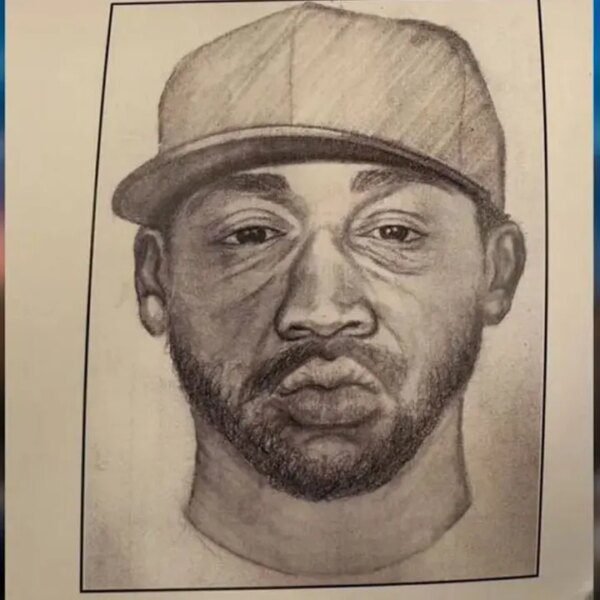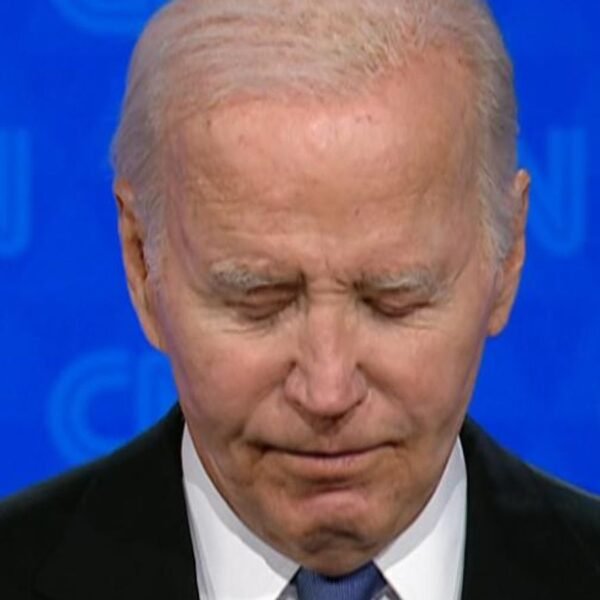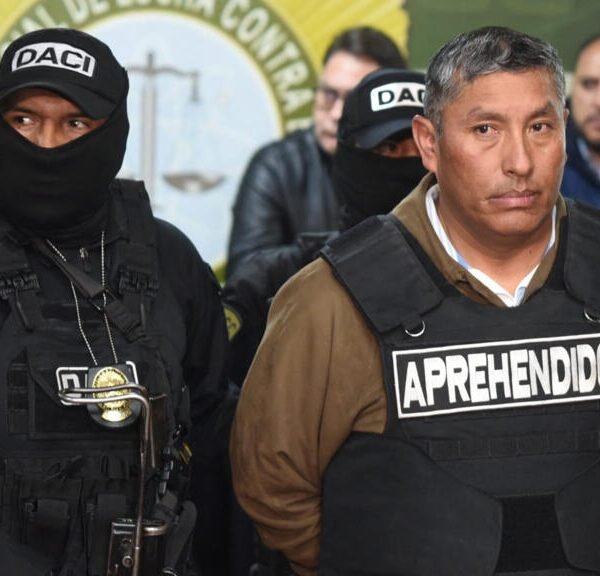The Rev. Gérard Tsatselam boarded the ferryboat and settled in his usual place, on a reclining seat, at the back of a cold, unlit room that would have been packed in summer. Uneasy, he sat shrouded in his large, black coat as high winter winds delayed the boat’s arrival in the village where he was trying to save the church.
Except for a quick stopover for a funeral, he had not visited his parish — in Unamen Shipu, an Indigenous reserve on the frigid, isolated coast of northeastern Quebec — in months. Mold had invaded the presbytery and left him scrambling for lodging on each visit.
Another reason behind his unease was the enduring fallout from the accusations of sexual and other abuse by a predecessor, a Belgian priest. Though the transgressions dated back decades, during what Father Gérard called the Roman Catholic Church’s “colonial” era, dealing with the parishioners’ anger and distrust had fallen to him — a priest and missionary from the Central African nation of Cameroon.
Father Gérard had been Unamen Shipu’s priest for four years, and his predecessor long dead, when the accusations were leveled in 2017.
“The moment they came out, the dynamics changed,” he had said before boarding. “There’s a before and an after.”
He had watched, helplessly, as most of his parishioners broke with the church.
Now, returning to Unamen Shipu, Father Gérard planned to comfort his dwindling flock and restore the faith of those who had left. He would try to assuage the rage that had fueled threats to burn down the presbytery and to cast his predecessor’s body into the Gulf of St. Lawrence.
“It’s a complex terrain,” Father Gérard said. “People are still Christian. They’re religious, they believe, they still have faith. But they’re really hurting a lot.”
“Too much,” he added after a pause, so softly it was easy to miss.
The Healer From Africa
Father Gérard is 43, a soft-spoken man of medium build, whose closely shaved head emphasizes his expressive eyes. He was born and raised in northern Cameroon, in a region conquered in the 19th century by Muslim invaders belonging to the Fula people, one of the dominant ethnic groups in western Africa. After World War II, priests from the Missionary Oblates of Mary Immaculate from France arrived and sought those who had resisted converting to Islam, like Father Gérard’s family.
“For us, Christianity was seen more as a religion that liberated us from the domination of Muslim invaders,” Father Gérard said, explaining what drew him to begin studying for the priesthood in his 20s.
When Oblate priests from Canada came looking for recruits to replenish their aging ranks, he jumped at the chance.
Over the years, le Père Gérard has become a well-known and respected figure in this remote corner of Quebec, crisscrossing it by ferryboat, plane and snowmobile, his possessions stuffed in a hockey bag. He arrived from Cameroon in 2012 as an idealistic priest in his early 30s with little knowledge of Canada’s entangled history with Indigenous people, part of a wave of African priests who began coming to Quebec to make up for a shortage of local ones.
Their arrival coincided with a nationwide reckoning over Canada’s brutal treatment of generations of Indigenous people, including by the Catholic Church and at church-run boarding schools. As the church lost its authority in still deeply religious Indigenous communities, who better to heal the historic wounds than priests from Africa, a continent broken apart by colonialism? Though Father Gérard would never say so explicitly, African priests like himself were in a singular position in relation to the Indigenous population — free of the weight of the nation’s history and colonialism in a way that no Canadian or European priest could ever be.
“His history is also our history,” said Francis Malec, 67, a church elder.
Father Gérard endeared himself to many of the Innu, the local Indigenous people he was serving, by mastering their language and effortlessly engaging in their banter.
Still, even some who expressed affection for Father Gérard discerned in his presence a cynical move by the church.
“When I just think of Father Gérard, how he is, how he approaches people with his sense of humor, I think how much the church has changed,” said Bryan Mark, 41, a former chief of Unamen Shipu’s band council. “But I also have the impression that the African priests are here to try to save the image of the church.”
After hours of travel, Unamen Shipu’s shoreline of low-lying houses appeared in the distance — a nearly unbroken line of dots of white light, with the church building and the presbytery occupying the center. The ferryboat bided its time off the coast, unable to dock because of the winds.
Father Gérard finally disembarked after the sun rose. The journey had taken 12 hours instead of two, but he had gotten some sleep and was ready to begin his work among a people who may or may not trust him.
Saying Mass for Two People
Father Gérard made his way to the community radio station on foot. The wind had disappeared, the sun shone bright, and it was such a beautiful winter day that he often took out his cellphone to take videos. His unease seemed to melt.
At the radio studio, the host interrupted a live show to hand over the microphone to Father Gérard. Not bothering to take off his coat or wool hat, Father Gérard stood and spoke for four minutes in Innu, closing his eyes for long stretches as he often did. He expressed regret for his long absence and pivoted to the present.
“We’ll try to visit our elders,” he said, listing people to whom he planned to give communion in their homes.
He invited listeners to Mass later that afternoon.
Today, about 1,400 people, most of them Catholic, live in Unamen Shipu, which is also known by its French name, La Romaine. About 300 Innu work for the local Indigenous government, the community’s biggest employer, while most others receive social assistance. A tiny population of French Canadians lives just outside the reserve, and some run small businesses like hunting lodges.
In the dead of winter, you could make it to Unamen Shipu, the joke went, but you never knew when you would make it out. Ice thickens to make the Gulf of St. Lawrence impassable to the ferryboat. Blinding storms sever Unamen Shipu’s remaining link to the outside, an 18-seat plane that makes milk runs among Indigenous communities, including the three where Father Gérard serves as the priest.
At Mass that afternoon, Father Gérard ministered to just two people, both stalwarts of the congregation: a French Canadian Catholic sister, Armande Dumas, who had lived on the reserve for years, and Antoine Bellefleur, the lead cantor in the parish. So as he spoke from the altar, a statue of the Virgin Mary behind him and a small tepee above him, he faced rows of empty pews not only before him but also to his left and right.
In a deep baritone that echoed across the auditorium and seemed to overwhelm Father Gérard’s voice, Mr. Bellefleur sang about hunting and trapping, a century-old hymn composed by Oblate or Jesuit missionaries to convert the Innu.
When Mr. Bellefleur was born 80 years ago, the Innu were one of Canada’s last First Nations to lead a nomadic existence. He said he had been close to all the priests who had served in Unamen Shipu since its creation in 1956. He was comforted by the enduring use of the prayer books that the Belgian priest had written decades ago.
“Father Gérard still uses those books, so there’s not a big difference,” he said.
Father Gérard had not expected many to show up for Mass. Unamen Shipu was cold and dark by late afternoon, and its roads were slippery. It was a Thursday, after all, not Sunday.
The poor attendance left him unsettled, however.
“We’re only two or three in church,” he said, the next morning. “So, of course, I have to ask myself what that means.”
The Black Room
When Father Gérard arrived at the presbytery, paint was peeling off its white clapboard siding. The split-level house seemed to be sinking in the snowbanks that surrounded it, next to the church.
After shoveling the snow blocking the side entrance, he went inside to the unmistakable, musty smell of mold. He gave a tour of the house — which for decades had stood not only at the community’s physical center, but also at the center of its power.
The presbytery embodies the predicament in which Father Gérard finds himself: If it is torn down as some aggrieved parishioners are demanding, the community will lose a part of its history, and his Oblate order lacks the means to build a new one, he said. But if the building remains, it will serve as a lasting reminder of the Rev. Alexis Joveneau, the abusive Belgian priest who had it built four decades ago, even hiring a brother from Belgium to oversee the construction and decorations to make the place feel like a Belgian home of that era.
Parishioners took down all the photos of Father Joveneau, Father Gérard said, motioning to the walls.
“Everything’s been removed,” he said, adding with an uneasy laugh, “but his spirit remains present.”
Father Gérard stopped in front of what has become known as “the black room,” a closed door in the basement, which he forswore opening because of the mold.
It was the “room where the abuses took place,” he said.
“There are places that evoke bad memories,” he added. “That’s why people say that the presbytery must be demolished.”
The presbytery, though, was also the result of the parishioners’ hard work, Father Gérard said. They provided the labor to build it and helped Father Joveneau — whom they always called by his last name — run it for decades. It’s an important part of their history, he said.
A large basement room contains bound volumes offering a rich, detailed history of Unamen Shipu — newsletters and magazines written by Father Joveneau. Albums are gorged with photos taken by the priest and others and meticulously archived by Innu parishioners.
“People in the village know there are photos here, so they come and look at photos of their grandparents when they were young,” Father Gérard said.
In the kitchen, three days before Christmas in 1992, Father Joveneau was having his morning tea with a church member when he suffered a fatal heart attack.
The armchair in which he collapsed is still there — a few feet from a hole in a window, made by a stone hurled into the presbytery after stories of the abuses emerged.
A Churchgoer No More
Just as Father Gérard had said on the radio, he began visiting homebound parishioners to give them communion. No visit was as important as the one he would pay to Marie-Agathe Mullen, 70, a leader of the church and among women in the community.
Since the revelations of the abuses, women had stopped coming to church — out of solidarity with the female victims who had spoken out, Father Gérard believed.
“I went on the radio, but nobody came to Mass,” Father Gérard said of Ms. Mullen. “But if she had gone on the radio, things would have been different.”
He found her watching a music show on TV after lunch. He sat on the edge of a couch, his coat unzipped, the bottom of his jeans tucked into striped green socks. Like at other parishioners’ homes, a statue of the Virgin Mary stood in the living room. A poster hung on the wall — “In our home,” it read in French, “happiness is a family business” — between framed photos of her mother and father.
“That’s her father — he was a spiritual leader in the community and led people in prayer,” Father Gérard said. “He was also a great hunter.”
“He knew the land very well,” Ms. Mullen said.
“He made canoes,” Father Gérard said.
“Yes,” she said. “The last canoe he made, he was 82 or 84.”
Ms. Mullen said Father Gérard had integrated himself well among the Innu.
“We were colonized by white people,” Ms. Mullen said. “He experienced the same things we did. And he feels comfortable with us because we’ve experienced the same things.”
Ms. Mullen still occasionally watched a documentary from the 1960s in which her parents and relatives were interviewed and Father Joveneau was featured prominently. But she was tight-lipped about Father Joveneau, whom she had known well, and evasive about why she no longer went to church.
Father Gérard gave her communion and lingered for nearly an hour, but Ms. Mullen still gave no indication of whether she was moving beyond the Father Joveneau affair. When she mentioned that she had turned 70 recently, it allowed Father Gérard to leave on a bright note.
“Happy birthday to you!” he sang in Innu, before stepping back into the cold.
A Priest’s Dark Legacy
Father Joveneau began serving as the priest in Unamen Shipu in 1953, a few years before the reserve’s establishment. For decades, he wielded the authority to decide how to spend government funds and allocate allowances for families and scholarships, Innu leaders said. He was also an avid photographer and prolific writer whose work constitutes the reserve’s recorded history.
“He was like Jesus,” said Normand Bellefleur, the longtime town manager. “He had such an influence on people. He controlled everybody.”
The first public accusation of abuse occurred only after Father Joveneau’s death in 1992 — just hours after the priest was buried. The accuser had long worked at the church for Father Joveneau and was known for his problems with alcohol.
“After Father Joveneau’s funeral, he was screaming all over the village — he was completely drunk — he was screaming that he was so glad that Father Joveneau was dead, that the priest had kept raping him when he was young,” recalled Mr. Mark, the former chief of Unamen Shipu, whose house sits behind the church.
“But nobody listened to him.”
A quarter of a century passed before others spoke out.
The full exposé of accusations against Father Joveneau began in 2017, when Canada was holding a nationwide inquiry into missing and murdered Indigenous women. Four Innu women, including two from Unamen Shipu, testified that he had sexually abused them repeatedly when they were girls.
Others followed, women and men, both Innu and from the small French Canadian community. A Belgian niece of Father Joveneau said her uncle had repeatedly raped her during a nine-month stay in Unamen Shipu.
The Oblate order issued an apology through the news media to all of Father Joveneau’s alleged victims. A lawsuit filed by about 200 plaintiffs is still moving through the courts.
If there was what Father Gérard described as a “before,” the testimonies triggered the start of the “after.” Some threatened to exhume Father Joveneau’s body and cast it into the Gulf of St. Lawrence. Others vowed to burn down the presbytery.
“They said that would assuage our suffering,” Mr. Mark said.
The testimonies also divided the community between those who believed the accusers and those who still defended Father Joveneau.
Antoine Bellefleur, the lead cantor, said that a cross next to Father Joveneau’s headstone was tossed outside the cemetery.
“I put it back in its place.”
‘They Want a Church in Their Image’
It fell to Father Gérard to deal with the crisis.
Besides the drop in attendance, he noticed a turn, especially among the younger members, toward Indigenous traditional beliefs.
“Traditional spirituality also exists among Africans,” Father Gérard said. “When you become Christian, they say you can’t practice those beliefs anymore.”
“But sometimes when people suffer great traumas, deep wounds, some go back,” he said. “It’s as if those traditions are part of a person’s being. It’s as if Christianity is not enough.”
Among some of the angriest, Father Gérard saw “a total rejection, a wish to return to ancient times, before the arrival of the missionary and colonization.”
“That speaks to me as an African,” he said. “But at the same time I tell myself, How do you go back? What do you go back to? We’ve come too far to be able to go back to our ancient culture.”
More and more, Father Gérard said, even believers sought their spiritual fulfillment outside the church building. When they came, it was often to mechanically carry out baptisms, confirmations and other rites viewed as socially required.
“I try to respond to their needs,” Father Gérard said, adding that he sometimes saw himself simply as a “service provider.”
Over the years, Father Gérard had formed close bonds with the locals. He often visited and ate in people’s homes, dropping by unannounced as he would have done back in Cameroon.
But feeling the community’s distrust of the Church after the revelations of abuse, Father Gérard, too, took a step back.
He no longer invited people to the presbytery. He stopped visiting people’s homes spontaneously, or lingering. He cut back on jokes and bantering for fear that they would be misinterpreted.
“Now there’s a restraint that weakens human relations,” he said.
One evening, Father Gérard ran into a group of six young Innu women having dinner at an inn. He knew them all and their families. He caught up with them in Innu, joking and smiling. Why, he eventually asked, didn’t they come to church?
The women kept smiling, the tone of their voices did not change, and a non-Innu speaker could not have guessed what they told him. Later, Father Gérard recounted the conversation.
Everything, the women had said, reminded them of the past and of Father Joveneau. Could Father Gérard demolish and rebuild the church and presbytery? Could he use new prayer books? Could he bring new furniture, new interior decoration? Could he debaptize and rebaptize them?
Father Gérard’s smile had not disappeared either. But the next morning, he could not hide his frustration.
“They want a church in their image,” he said. “But will they come even then?”
Sunday Mass
As he prepared for church that Sunday, Father Gérard did not dare to hope for a large attendance. But just before the start of Mass at 9 a.m. there was a promising sign. The 74-year-old man in charge of ringing the church bell, who Father Gérard believed was away for medical treatment, showed up unexpectedly.
As he tugged on the bell rope, the sound rising over Unamen Shipu, parishioners began arriving on snowmobiles and ATVs. Thirteen came, 10 men and three women. The French Canadian nun was the only one to sit in a pew directly facing the altar. Mr. Bellefleur and three other cantors were clustered together. The rest sat in the most distant rows of pews, staying close to the main entrance as if they had not fully made up their minds to stay.
Closing his eyes for long stretches, Father Gérard spoke of how Jesus called on disciples after the arrest of John the Baptist. Such was the power of Jesus’ message that it did not matter that some of his followers were simple people, bickered among themselves or did not even understand his message.
“Jesus chose them despite their limitations, their incapacity,” Father Gérard said.
That evening, Father Gérard took a long walk through Unamen Shipu as he often did. Teenagers raced through the streets on snowmobiles. Dogs tended to roam at night, often in packs, but stayed away from the priest.
Father Gérard was more at ease and now spoke enthusiastically about his next visit. He planned to bring along a newcomer — a young priest also from Cameroon, who was spending his first year in Quebec learning Innu and getting ready for his mission. Both could even stay in the presbytery during their visit. The mold, in winter at least, was not unbearable, Father Gérard now said.
He would keep fighting to save the church in Unamen Shipu by changing for good the way it related with the Innu.
“We’re among people who’ve been here for thousands of years, and it’s thanks to them that we can come here,” he said. “So it takes humility when you come here.”
“I’m going to contribute in my way, by walking with them, by being present with them,” he added. “It’s no longer the church that dictates what to do and how to be.”


















